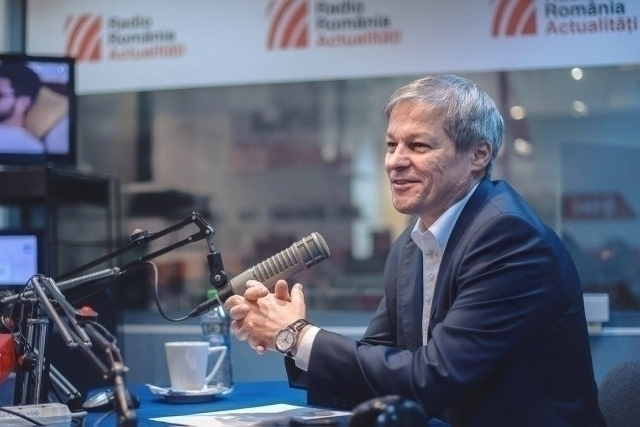New leaders for USR party
USR, as the party will be called from now on, has a new president, the ex-PM Dacian Cioloş

Ştefan Stoica, 04.10.2021, 12:17
The
merger between Save Romania Union and Freedom, Unity and Solidarity Party (PLUS)
concluded with the congress held this weekend. The third-largest party in
Parliament will be known from now on, more simply, as USR.
Dacian
Cioloş, former EU commissioner for agriculture and Romania’s PM after the 2015 Colectiv
tragedy, will be the party’s president until 2023, when the current leading
team is to be assessed and the strategy for the 2024 legislative and
presidential elections put together.
High-profile
politicians are also among the party’s new vice-presidents: former leader Dan
Barna, who lost the election for party president by a small margin, Vlad
Voiculescu, Cătălin Drulă and Claudiu Năsui, all of them members of the
coalition government until the recent clash with Florin Cîţu’s Liberals.
Dacian
Cioloş has the ambitious goal of making USR Romania’s top right-of-centre party:
Dacian Cioloş: Our
goal is to be prepared in 2024 to become the country’s leading right-wing party.
This means we have to grow as a party, to strengthen our public voice and to
increase our membership.
The
former party leader Dan Barna lost to Cioloş, but his team is the one that has
a majority in the party’s National Bureau. He insisted on the need for unity:
Dan Barna: We
are a team that will move on together and will make USR Plus a strong party, a
party that will matter in any kind of negotiations in the coming months and
years.
A party
created on the foundations of an NGO joined by civil activists, young employees
in multinational corporations and businesspeople, USR has aimed from the very
beginning to be different from traditional parties like the Social Democrats
and the Liberals. However, ideological affinities with the Liberal Party gave
rise to the coalition formed shortly after last year’s parliamentary election,
a coalition also joined by the Democratic Union of Ethnic Hungarians in Romania.
After
the justice minister Stelian Ion, a USR member, was dismissed, his party colleagues
left the cabinet and tabled a no-confidence motion to dismiss PM Cîţu, blamed
for causing the coalition to break up.
USR
say they will return to the government provided that the Liberals appoint
another prime minister. But the negotiations between the two parties depend
entirely on whether Florin Cîţu’s minority government survives the
no-confidence motion, due for vote on Tuesday.
According
to commentators, USR would benefit from staying in opposition until the
elections of 2024. But since the former NGO has already had a taste of power
and some experience in governing, the Liberals may find it easier to convince
them to return as partners in a ruling coalition. (tr. A.M. Popescu)






























